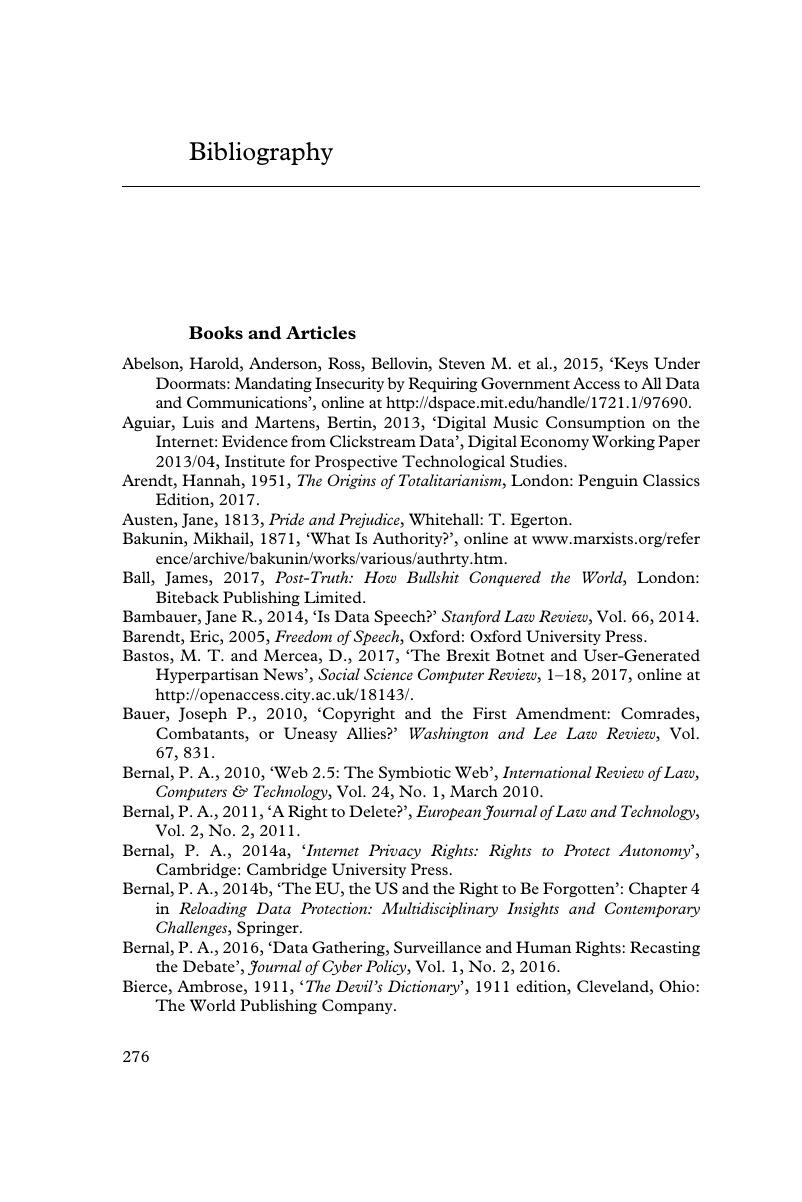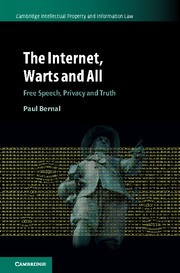Book contents
- The Internet, Warts and All
- Cambridge Intellectual Property and Information Law
- The Internet, Warts and All
- Copyright page
- Contents
- Preface
- Acknowledgements
- 1 The Internet, Warts and All
- 2 Illusions of Permanence
- 3 Confusion over Perfection
- 4 The Neutrality Myth
- 5 Free Speech Fantasies
- 6 Misunderstanding Privacy1
- 7 Seven Myths of Surveillance
- 8 Troubles with Trolls
- 9 Fighting Fakery
- 10 Warts and All
- Bibliography
- Index
- Cambridge Intellectual Property and Information Law
- References
Bibliography
Published online by Cambridge University Press: 01 August 2018
- The Internet, Warts and All
- Cambridge Intellectual Property and Information Law
- The Internet, Warts and All
- Copyright page
- Contents
- Preface
- Acknowledgements
- 1 The Internet, Warts and All
- 2 Illusions of Permanence
- 3 Confusion over Perfection
- 4 The Neutrality Myth
- 5 Free Speech Fantasies
- 6 Misunderstanding Privacy1
- 7 Seven Myths of Surveillance
- 8 Troubles with Trolls
- 9 Fighting Fakery
- 10 Warts and All
- Bibliography
- Index
- Cambridge Intellectual Property and Information Law
- References
Summary

Information
- Type
- Chapter
- Information
- The Internet, Warts and AllFree Speech, Privacy and Truth, pp. 276 - 284Publisher: Cambridge University PressPrint publication year: 2018
